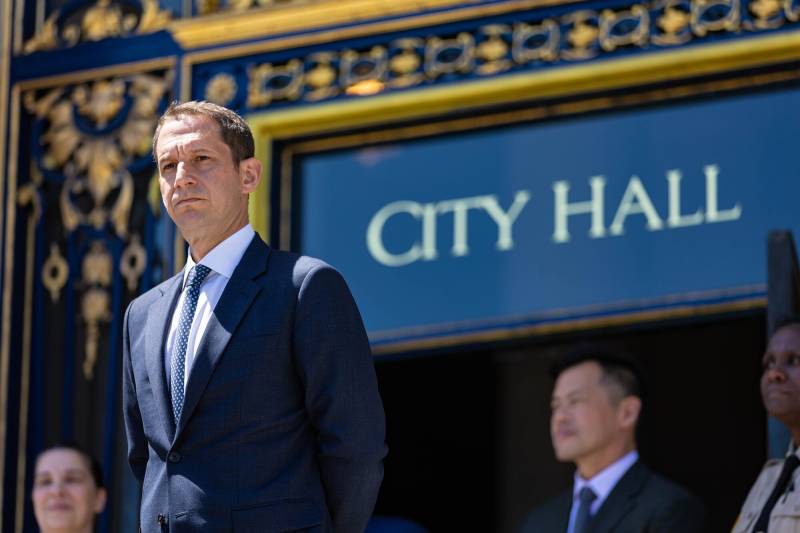“As we get our fiscal house in order, we are revisiting contracts across city government and bringing grants back in line with pre-pandemic levels,” Lurie said. “These are the steps we must take to responsibly manage our budget, not just this year but for years to come.”
Members of the Board of Supervisors are now contending with the cuts.
“There are no good options, especially given the attacks and draconian cuts coming from the Trump administration, [which] certainly impact San Francisco,” said Supervisor Connie Chan, chair of the city’s Budget Committee.
But some departments were spared, including the district attorney’s and public defender’s offices. The Police Department, Fire Department and Sheriff’s Department will also not face dramatic cuts, along with 911 dispatchers.
Lurie’s proposal also sets aside $400 million in reserves to prepare for potential federal funding clawbacks.
“In the event that when we face federal cuts, particularly Medicaid, which we were anticipating, we can use that money to offset some of these cuts so that people can continue to have care,” Chan said. “This is really critical. People can die if they do not receive care. Now, will that be enough? No.”
The reserve includes $1 million for city attorney litigation efforts “as uncertainty around the federal and state budget processes threatens to undermine San Francisco’s communities and undo the city’s progress,” a budget memo reads.
San Francisco receives billions in federal funding in the two-year budget for programs including homeless services, housing and human services. The Trump administration has threatened to pull money from so-called sanctuary cities such as San Francisco, and the city is now on the hook to pay back $141 million in COVID-era federal disaster funding.
The mayor’s budget also allocates about $132 million in public facility maintenance, such as repairs for potholes, playground equipment, homeless shelters and fire stations.
Nearly two dozen technology improvement projects would get about $50 million earmarked, including efforts to upgrade the city’s street outreach client management tool, tax systems and a citywide data management system.
Next, the Budget and Legislative Analyst’s Office will review the budget, and the Board of Supervisors will hold hearings with city departments about the proposed cuts and can request amendments. The final budget is due at the end of June.



